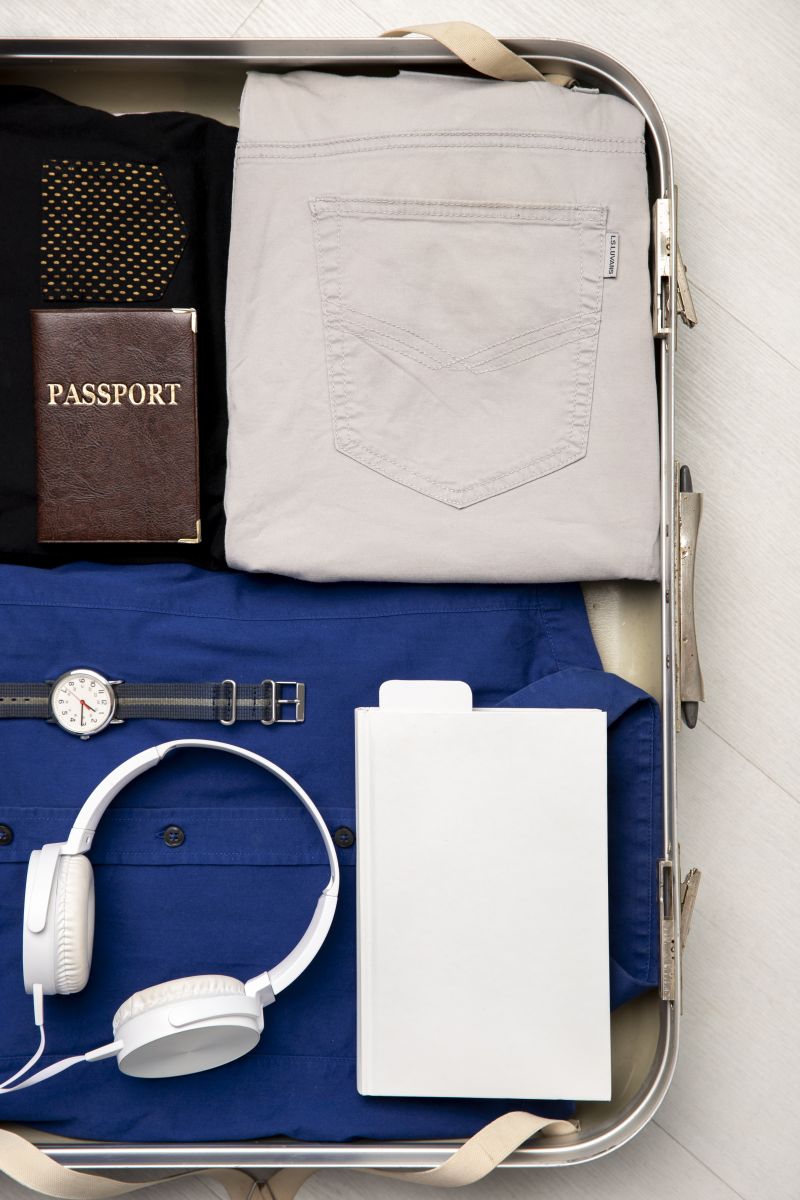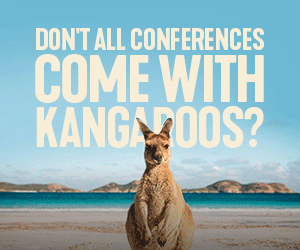How to Protect Associations from Health and Safety Risks during Business Travel?

Business travel inherently poses some level of stress and health risks to a traveller, which not only affect those professionals but also associations in terms of insurance and/or the temporary or prolonged loss of an employee. The duty of care obliges the organisation to plan, develop and implement a set of policies and operational procedures to mitigate the risks its representatives may face when travelling on business.
On the other hand, mental health issues have been at the center of discussions, especially when it comes to the events industry – considered one of the most stressful careers in the world – having reached a boiling point with the pandemic due to various after-effects such as social entropy, financial problems, anxiety and burnout, etc. Many of these professionals started working from home or remote offices, and the separation between the personal and professional realms eventually blurred in the fuss of the daily routine.
Anuja Agrawal and Mary Miller Sallah (below) are the authors of "Check-Up, Check-In: Why Business Travel Strategies Should Prioritize Employee Health and Wellness", and have developed their professional paths in the medical and wellness fields. We decided to talk to them about risk assessment for business travellers, employee education and training, and mental health protection for associations.
1) Can we say that by 2023 the COVID-19 pandemic has given way to a mental disorder pandemic? Are there any accurate figures and studies out there to support this?
.png) Anuja Agrawal (pictured right): Studies and surveys all point at heightened levels of anxiety, depression, and other mental and psychological health challenges during COVID-19. Even as we move into the post-COVID era, 90% of the population continues to believe there is a mental health crisis in the United States today. Mental Health America shows in its 2023 report that 21% of Americans are suffering from a mental illness, and 16% of young people have suffered from a depressive episode in the past year. In the March 2023 segment of the Household Pulse Survey, over 28% of all adults in the US reported symptoms of anxiety disorder or depression with that figure at 41.8% in young adults aged 18-39. In the UK, the NHS estimates that 1 in 4 adults and 1 in 10 children suffer from mental illness and the WHO reports 700,000 suicides a year, which equates to one every 40 seconds. All these figures point conclusively to the need for stronger commitment, for careful review of the factors and environments that impact on mental health, and for strengthening support systems and structures.
Anuja Agrawal (pictured right): Studies and surveys all point at heightened levels of anxiety, depression, and other mental and psychological health challenges during COVID-19. Even as we move into the post-COVID era, 90% of the population continues to believe there is a mental health crisis in the United States today. Mental Health America shows in its 2023 report that 21% of Americans are suffering from a mental illness, and 16% of young people have suffered from a depressive episode in the past year. In the March 2023 segment of the Household Pulse Survey, over 28% of all adults in the US reported symptoms of anxiety disorder or depression with that figure at 41.8% in young adults aged 18-39. In the UK, the NHS estimates that 1 in 4 adults and 1 in 10 children suffer from mental illness and the WHO reports 700,000 suicides a year, which equates to one every 40 seconds. All these figures point conclusively to the need for stronger commitment, for careful review of the factors and environments that impact on mental health, and for strengthening support systems and structures.
2) How can associations frame mental health internally in this unpredictable and constantly evolving framework?
 Mary Miller Sallah (pictured left): Everyone organisation must define what “optimising healthcare” means for their organisation and their individual employee. Today, mental health is one component employees are increasingly interested in understanding how this is a priority for their employers. However, access to services, affordability of benefits, and readiness for business travel needs are also at the top of the list. Associations can benefit employers, members and prospective members by defining what mental health encompasses and the minimum threshold that the associations expect their member base to address. If they are not proactive in the mental and physical demands that are at the forefront of their member base, the cost to health can be enormous. As noted in a 2022 report published by the Mental Health Foundation and the London School of Economics and Political Science, mental health problems cost the UK economy at least £117.9 billion annually.
Mary Miller Sallah (pictured left): Everyone organisation must define what “optimising healthcare” means for their organisation and their individual employee. Today, mental health is one component employees are increasingly interested in understanding how this is a priority for their employers. However, access to services, affordability of benefits, and readiness for business travel needs are also at the top of the list. Associations can benefit employers, members and prospective members by defining what mental health encompasses and the minimum threshold that the associations expect their member base to address. If they are not proactive in the mental and physical demands that are at the forefront of their member base, the cost to health can be enormous. As noted in a 2022 report published by the Mental Health Foundation and the London School of Economics and Political Science, mental health problems cost the UK economy at least £117.9 billion annually.
3) How to address new health and safety risks when assessing employees’ support and fitness to travel?
AA: In our book, “Check-up, Check-in...” we advocate a more holistic approach to business travel, particularly with regard to employee health and well-being. There, we detail a seven-step process from assessment to policy building to policy enforcement in an attempt to help companies ensure a solid foundation for meeting their responsibilities for the health and safety to their travelling employees. Our premise is that successful risk avoidance is not just a matter of luck or meeting some minimum criteria, but a matter of careful planning. We've seen too many companies that have borrowed travel policies or templates to create unenforceable, unnecessary, or incomprehensible rules. An effective policy requires consideration of employee travel beyond the concerns of risk management and legal compliance alone. Duty of Care also encompasses moral, ethical and social responsibility. It is a business imperative that organisations develop a sufficient and sustainable business travel policy that meets their Duty of Care obligations.
4) In your opinion, what steps can the meetings industry take to provide coping mechanisms and other professional guidance?
MMS: While the pandemic has created a number of dramatic and lasting changes for various business segments, it has simultaneously accelerated the availability of online resources and solutions available to the general public for response mechanisms and other professional guidance around mental health. Across various business industries, niche and customised solutions have also become available. The meetings industry would benefit from prioritising the need to identify, advocate and sometimes partner with verified resources that industry professionals can trust and, in particular, reduce the amount of time needed to find equal and effective resources. Furthermore, and similar to the premise originated by our book, a call to action to take steps to provide such resources should be immediate − any delay in such is a failure to act and to respond to the needs of today’s event industry professionals.

5) What do you think is a priority for travel agents, managers and DMCs when booking trips for association and corporate travellers?
AA: Assuming travel agents and managers are booking within the parameters and guidelines of the commercial policy set by their clients or employers, I believe success is measured as a factor of meeting traveller expectations. Typical traveller expectations include: value for money of available travel and accommodation options; traveller convenience with upgrade options for flights and rooms; loyalty programmes where the traveller can use travel points; accessibility of accommodation or other health- related needs; travel or accommodation options with reduced security risks; and emergency information and communication protocols. In addition, travel managers may have additional responsibilities depending on the scope of their engagement − which may include additional risk management, travel monitoring, call support, emergency management and more − to ensure their client’s duty of care is fulfilled.
6) What are the biggest gaps in most travel risk training programmes?
MMS: The issue of gaps is a critical reason why travel risk training programmes need to check their effectiveness by checking in with their staff with the overall value of the programme. Determining gaps in travel risk training programmes is often something we learn after “an event” has occurred during travel. However, with any internal team or employee training, one of the first goals is to ensure that the material is delivered effectively to the audience that retains or learns the information. Following the objective involving retention of the information would be the objective of training around the application of the material learnt − scenario-based or stimulus-based training on key topics is something we understand is often a gap in training programmes. The benefits of simulation-based training include the incorporation of real-time feedback and specific role- based application, improved critical thinking skills and proactive risk identification.
Other Articles
About Us
Supported by the Union of International Associations (UIA), the International Association of Professional Congress Organisers (IAPCO) and the Interel Group, the global public affairs and association management consultancy, Headquarters Magazines serve the needs of international associations organising worldwide congresses.















